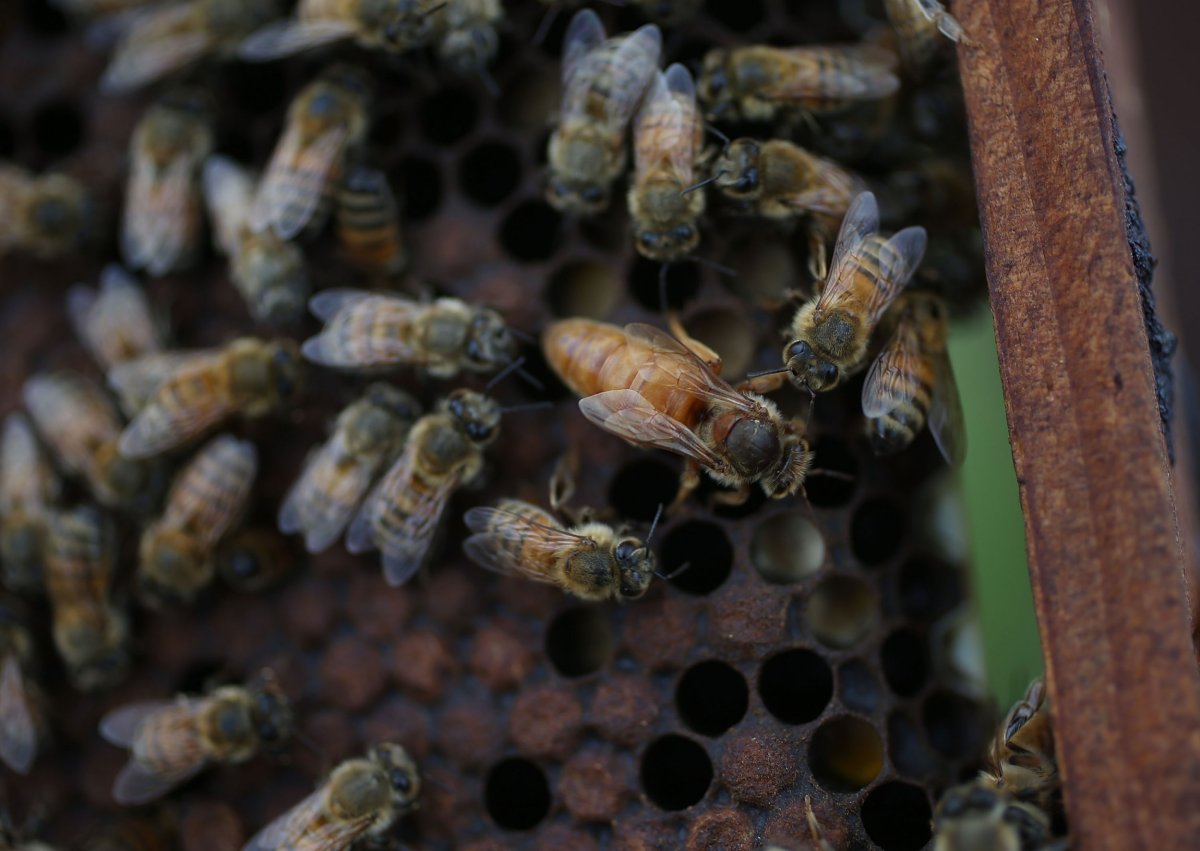Two species of mushrooms may be able to prevent common bee viruses.
Researchers from multiple American institutions, including Washington State University and the United States Department of Agriculture, studied a solution to the widespread deaths of honeybees. Published in Nature Scientific Reports Thursday, the study showed large reductions in virus prevalence in bee populations when the bees are given a solution of mushrooms and water.
"Tennessee lost about 74 percent of its beehives from last winter to this spring. Imagine you are a cattle rancher and lost that percentage of your herd. Economically devastating," Paul Stamets, lead author on the study and mycologist told Newsweek. "This is what is happening to bees and the bee industry. Some states report fewer losses, many are reporting more than 50 percent. The beekeepers are struggling to survive, too."
The bee populations have been dwindling due to multiple causes, such as pollution, parasitic mites, habitat loss, and pesticides. Stamets and his team looked at two common viruses that have been contributing to bee loss: deformed wing virus (DWV) and Lake Sinai virus (LSV). Both of these viruses shorten bee flight times by nearly half, reduce the bee's ability to pollinate, and suppress their immune system. If a flower is visited by an infected bee, the next bee—even wild bees—to visit that flower could be infected as well.
"There have been no treatments reducing viruses that are decimating wild and domesticated bees until now," Stamets said. "And these mushroom extracts dramatically reduce viruses, in some cases thousands of times with one treatment."
The scientists tested the mushrooms in both cage and field trials by adding mushroom mycelium extract of the Reishi and Amadou mushrooms to the bees' sugar water at 1 percent concentration.

The caged honeybees' prevalence of DWV decreased more than 800-fold, while in the field they experienced a 44-fold reduction when using the Amadou mushroom. The Reishi extract was successful against LSV—the extract reduced LSV 45,000 times the rate of the control group.
"The implications are that these extracts could help the immunity of not only bees, but people, swine and birds. This could be a paradigm-shifting breakthrough," Stamets said. "We suspect the antiviral activity is due to an up-regulation of the immune system. Future studies will address this question. And we have many more species of mushrooms to test."
Stamets hopes to release a bee feeder with the mushroom extract by late next summer.
Uncommon Knowledge
Newsweek is committed to challenging conventional wisdom and finding connections in the search for common ground.
Newsweek is committed to challenging conventional wisdom and finding connections in the search for common ground.
About the writer
To read how Newsweek uses AI as a newsroom tool, Click here.








